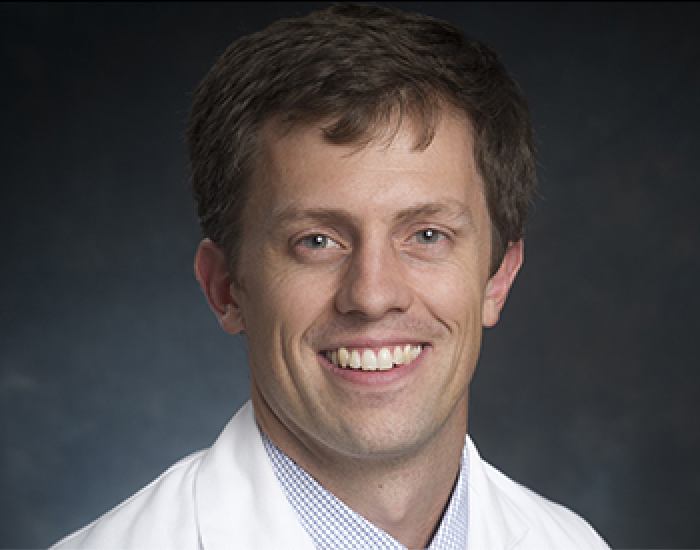In 2023, UAB Heersink School of Medicine piloted a new approach to clinical skills education for students. The Clinical Reasoning and Integrated Skills Program (CRISP) was launched to address the evolving demands of medical education nationwide. The move highlights the Heersink School of Medicine’s commitment to preparing future physicians with cutting-edge teaching and learning methodologies.
CRISP shifted the structure of the medical curriculum, bringing clinical reasoning to the forefront of student learning.  Monica Agarwal, M.D.In concert with traditional coursework, first and second year students learn what information is crucial to know and the clinical skills to collect it in preparation for third- and fourth-year clinical work. In CRISP, the reasoning and thought process behind the practical application of those learned skills is emphasized as well. As active learning has become more prominent in the first two years of medical school, it allows courses and the longitudinal CRISP program to introduce clinical reasoning earlier in medical education, in hopes of preparing students for the daily challenges of clinical work. For an effective transition of the curriculum, former curriculum leadership has remained involved in the program, investing their expertise as Clinical Skills Scholars. This has allowed CRISP to build upon the legacy of the former program while developing its vision of clinical education to meet the needs of modern medical students.
Monica Agarwal, M.D.In concert with traditional coursework, first and second year students learn what information is crucial to know and the clinical skills to collect it in preparation for third- and fourth-year clinical work. In CRISP, the reasoning and thought process behind the practical application of those learned skills is emphasized as well. As active learning has become more prominent in the first two years of medical school, it allows courses and the longitudinal CRISP program to introduce clinical reasoning earlier in medical education, in hopes of preparing students for the daily challenges of clinical work. For an effective transition of the curriculum, former curriculum leadership has remained involved in the program, investing their expertise as Clinical Skills Scholars. This has allowed CRISP to build upon the legacy of the former program while developing its vision of clinical education to meet the needs of modern medical students.
CRISP is co-directed by Monica Agarwal, M.D., and Winter Williams, M.D., who entered these positions with the launch of the program in 2023. “Although any curricular change is hard, we know how important it is to have a longitudinal approach to teaching clinical skills and will continue to learn and adapt the program to meet the needs of our students,” noted Williams.
 Winter Williams, M.D.CRISP brings a competency-based, formative approach rooted in cognitive psychology that closes the gap between the knowledge students learn and the clinical world they experience. By proactively applying the reasoning component of the curriculum in the MS1 year, students are given a longer runway for those skills and information to develop. That structure allows multiple chances of information retrieval over the first two years so that by the beginning of the MS3 year, students feel better prepared and accustomed to the level of process required for successful clinical training.
Winter Williams, M.D.CRISP brings a competency-based, formative approach rooted in cognitive psychology that closes the gap between the knowledge students learn and the clinical world they experience. By proactively applying the reasoning component of the curriculum in the MS1 year, students are given a longer runway for those skills and information to develop. That structure allows multiple chances of information retrieval over the first two years so that by the beginning of the MS3 year, students feel better prepared and accustomed to the level of process required for successful clinical training.
CRISP also introduces point-of-care ultrasound (POCUS) as the fifth pillar of the physical exam. Students have POCUS activities during their pre-clinical modules and learn how this skill is applied in contemporary clinical settings. Starting in academic year 2023-2024, all medical students received the option to check out a POCUS device for the entirety of their third year, to carry with them throughout all clinical rotations. Fourth-year medical students have also been given the opportunity to check out POCUS devices to use during their Acting Internships.
“POCUS utilization is rapidly expanding and is increasingly integrated into the physical examination in contemporary clinical practice,” said James Willig, M.D., MSPH, assistant dean for Clinical Education. “We are thrilled CRISP is providing this training to our students and that they will be leaving our institution prepared for this reality.”
CRISP directors and Medical Education leadership continue to collaborate with faculty and course directors to further develop this new format of instruction to meet the needs of medical students in the years to come.
The first cohort of CRISP students expressed strong satisfaction with the program, praising its ability to bridge the gap between theoretical knowledge and practical application, significantly enhancing their preparedness for clinical training. Reflecting on the program’s success, Agarwal said, “It’s encouraging to see the positive feedback from students. This is just the beginning, and we are committed to refining CRISP to meet the evolving needs of medical education.”